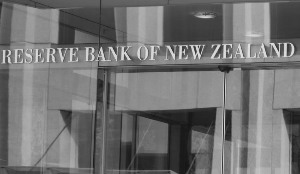Reserve Bank predicts fall in house prices
The Reserve Bank has predicted that house prices will fall from the third quarter of next year.
Thursday, August 19th 2021, 11:57AM  3 Comments
3 Comments

It says prices should fall every quarter to early 2024 when there will be a 3% fall in house values.
In its latest Monetary Policy Statement, the RBNZ said it expects house price inflation to moderate significantly because of low population growth, high levels of house building, higher interest rates and tax policy changes.
“The key drivers of housing supply and demand have turned around,” said Adrian Orr, Reserve Bank governor.
After the first Covid-19 pandemic lockdowns, house prices were predicted to tank, but instead they rose as spending and investment was diverted. “This is a pattern seen in many other countries in response to fiscal and monetary support designed to underpin economic recoveries.
“The magnitude of the recent house price increases across countries is related to the supply situation and the strength of their economy. In New Zealand, housing supply was low and the economy strong.”
Orr says the level of house price growth is unsustainable.
In the bank’s latest projections, house prices are assumed to eventually fall as momentum in the housing market fades. Previously the bank had expected them to plateau.
“While a large fall in prices is possible, at the same time, momentum in the market could prove more resilient than we expect.
“Expectations, and prevailing narratives surrounding the housing market can have a significant bearing on housing demand and house prices.
“The further house prices rise above their sustainable level, the larger the required realignment will need to be,” he adds
The bank’s Monetary Policy Committee noted a number of factors are expected to weigh on house prices over the medium term.
House building is at record levels and there is a significant pipeline of new housing supply coming. Previous large increases in housing supply, particularly in the 1970s, reduced real house prices.
Building consents data suggest by the middle of next year, the total number of houses will be growing at its fastest pace since the early 1960s.
Policy changes significantly easing land-use restrictions will encourage continued strong levels of building.
The committee says it considers the past decade’s undersupply of housing is reflected in existing house prices and a burst of house building will put downward pressure on prices.
Consistent with an easing of housing market imbalances, household sizes are likely to drop, the committee says.
As a hypothetical exercise, it estimates if population growth and the construction of new houses continue at their current rates over the next few years, people per house would return to their 2014 level by the end of 2023.
Other factors moderating demand
• The return from investment in housing will be reduced significantly by the removal of the tax deductibility of interest from rental income and the extension of the bright-line test. Along with tighter LVR requirements, these policy changes have reduced investor buying activity in the housing market. The share of new mortgage lending for investment property has declined to 17%, from 26% at the beginning of 2021.
• As interest rates rise in response to the improving economic outlook, this will dampen demand for housing in several ways. Higher interest rates will make investing in housing relatively less attractive than interest-bearing assets. They will also constrain the ability of new buyers to service debt while leaving enough income for consumption. It also means borrowing capacity will be reduced. In this scenario, demand to purchase houses at current prices will fall.
• The Reserve Bank will be consulting on a proposal to tighten restrictions on mortgage lending at high LVRs. It also intends to consult on introducing debt-to-income (DTI) restrictions and/or floors on the interest rates banks use in their mortgage serviceability assessments. These tools have already been added to its macro-prudential toolbox.
| « Economists react to rate hold decision | Vincent Capital adds a South Island BDM » |
Special Offers
Comments from our readers
Like Graeme Wheeler before him Governor Orr has shown that he is out of touch with the New Zealand housing market and what factors actually influence it. It's become painfully obvious now that too many academics are currently employed at 2 The Terrace Wellington with not enough "real world" thinking being done when it comes to setting policy.
Sign In to add your comment
| Printable version | Email to a friend |




the new lending rules in October could ruin the country anyway